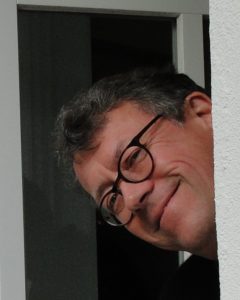Odsjek za muzikologiju
Muzičke akademije u Zagrebu &
Hrvatsko muzikološko društvo
GOSTUJUĆA PREDAVANJA
dr. sc. Philip V. Bohlman
Chicago, SAD

Philip V. Bohlman is Ludwig Rosenberger Distinguished Service Professor in Jewish History in the Department of Music and the College at the University of Chicago, where he is also artistic director of the New Budapest Orpheum Society, a Jewish cabaret ensemble-in-residence at the University. His research and teaching ranges widely across Europe, North America, the Middle East, and South Asia, and focuses especially on historical instances of religious, racial, and cultural encounter and conflict. He is Honorarprofessor at the Hochschule für Musik, Theater und Medien Hannover, and has held numerous guest professorships, most recently at the Universität der Künste in Berlin, the Hebrew University of Jerusalem, and the Franz Rosenzweig Professorship at the University of Kassel. Among his recent books are Jewish Music and Modernity (Oxford University Press, 2008), Hanns Eisler – In der Musik ist es anders (with Andrea F. Bohlman; Hentrich & Hentrich, 2012), Song Loves the Masses: Herder on Music and Nationalism (with Johann Gottfried Herder; University of California Press, 2017), and Wie sängen wir Seinen Gesang auf dem Boden der Fremde! Jüdische Musik zwischen Aschkenas und Moderne (LIT Verlag, 2018), and with the New Budapest Orpheum Society the recent CDs Jewish Cabaret in Exile and the 2016 Grammy Award nomination, As Dreams Fall Apart: The Golden Age of Jewish Stage and Film Music, 1925–1955 (Cedille Records). For his work as a performer of commemorative music from the Shoah Philip Bohlman has received the Noah Greenberg Award from the American Musicological Society and, with Christine Wilkie Bohlman, the Donald Tovey Memorial Prize of Oxford University. Among his other awards are the Derek Allen Prize of the British Academy, the Jaap Kunst and Bruno Nettl prizes from the Society for Ethnomusicology, the Ruth Solie Prize from the American Musicological Society, and, in May 2018, the Koizumi Fumio Prize of Japan. Philip Bohlman is a Corresponding Fellow of the British Academy and a Fellow of the American Academy of Arts and Sciences.
petak, 8. lipnja 2018. 18:00 i subota, 9. lipnja 2018. 9:15, Muzička akademija, soba 339 (III. kat)
Music in the Name of the State: Ethnomusicological Studies of Music and Nationalism / Glazba u ime države: etnomuzikološke studije glazbe i nacionalnizma
Predavanja doktorskog studija
The history of music scholarship, in Europe and beyond, is inseparable from assertions that musical identity acquires meaning through associations with the national sovereignty of the state. As the canons of folk songs and modal systems grow, so too do the claims that they express the uniqueness of a national people and the ways in which they are different from other national peoples. As it takes on attributes in the name of the state, music also enters the service of politics and political gain, therefore joining with other cultural forces in the service of nationalism. During these five sessions at the University of Zagreb we examine the intellectual history of music and scholarship as fundamental also to the growth of music scholarship in its diverse disciplines. The sessions move from examinations of early folk song scholarship, especially Johann Gottfried Herder’s foundational studies in the eighteenth century, and bring us to the most recent twenty-first-century struggles between music and nation, whether in the popular domains of the Eurovision Song Contest or the political domains of refugee crises in Europe and elsewhere in the world. Each session will contain a focus on a representative genre, and it will draw upon approaches from a particular area of music scholarship. Whereas the methods of North American ethnomusicology provide one point of theoretical departure, the historical presence of Croatia in several topics should also open topics for general discussion. At each moment in this intellectual history, we shall be mindful of both the positive and negative consequences of music’s persistent connections to nationalism.
-
Session 1: Voice/Citizen/State – First Formations of Musical Subjectivity
-
Session 2: Song Loves the Masses
-
Session 3: Power/Empire/Colonialism – Inventing World Music
-
Session 4: Narrating the Nation, Staging the Nationalist
-
Session 5: Music after Nationalism – Response to Global Crisis
Detaljniji raspored u prilogu.

